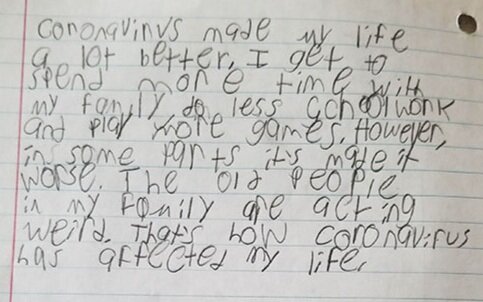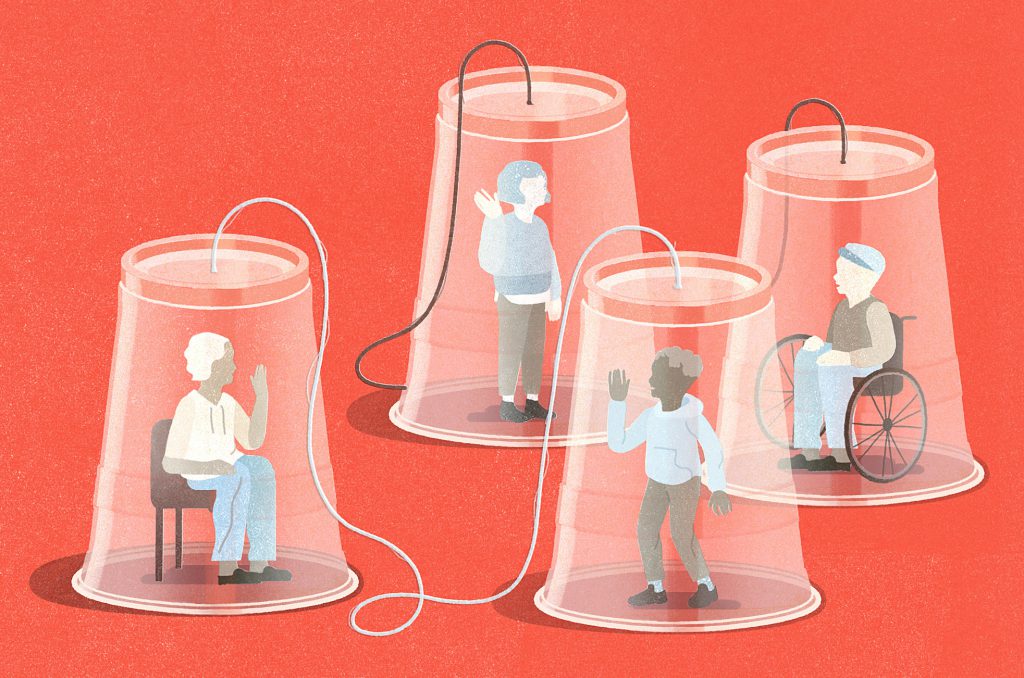
Sufficient Grace
“Have I ever had an original thought,” I asked myself. “Probably not,” I replied.
[Coronavirus made my life a lot better. I get to spend more time with my family, do less schoolwork and play more games. However, in some parts it’s made it worse. The old people in my family are acting weird. That’s how Coronavirus has affected my life. Gordon Jeter – 4th Grade]
Why would someone who grew up as a Fundamental Baptist, went to the same Bible College as Jerry Falwell did, graduated from a biblically conservative seminary and has since pastored only theologically conservative, evangelical churches find himself staying for the whole (nearly an hour) of an online Roman Catholic Mass celebrated by Timothy Cardinal Dolan at Saint Patrick’s Cathedral?…Good (long) question!
The short answer is, “the Corona Virus!” As the fourth-grade writer I cited above suggested, it has brought change into our lives. For some of us, and not just “old people,” as he suggests, it has made us, “weird.”
The longer answer is, that I was snooping to see how a church in which a person is told they need to physically “receive communion” in order to maintain relationship with God was going to pull that off. How would they do it and maintain “social distancing” as they claimed they could and would?
The bell rang signifying the time in the service when their belief is that a miracle had taken place. The bread and the wine had been “transformed” so that they were now the sacramentally effective body and blood of Christ. The Cardinal broke the host and ate. He drank the wine. Then, he deftly swept the fallen crumbs from the broken bread into the chalice holding the remaining wine.
Ok, this is what I was waiting for. How will they do this?
I felt cheated in my quest. A lesser functionary then stepped to a microphone and explained that “In times like these, canon law allows for a ‘spiritual’ communion. That is, when worshippers can’t take the actual bread and wine physically, they can ‘take it in their hearts’.”
Now my question was, “Why then, did these folks need to come to this building that Sunday to watch a Cardinal eat and drink the bread and wine?” Evidently they, technically, did not. Sadly, I had received no logistical insights from watching some of the masters at doing “church-service” logistics.
However, I must admit, I still learned something. Apart from the one song, specifically worshipping Mary, I was blessed by the music that all focused on the glory and majesty of God—blessed at least when they remembered to turn off the Cardinal’s microphone so that his singing was muted. Singing the biblical truth of God, in a Roman Catholic Mass was productive even in “Baptistic” me—even when they were singing unfamiliar lyrics to unfamiliar tunes.
But, again, confusedly, I realized I didn’t have to go to that building and be there physically to “participate” in that aspect of worship. I was, after all, watching electronically. Why do we go to church?

You often hear me say, “We can’t go to church. We are the church!” Of course—wink wink—that is a simplistic statement used for clarity and force. Words like “church” have different nuances in different contexts. We still know what someone means when they call a building “a church.” We still think in terms of “going to church” on Sundays.” Maybe thinking long and hard about how an ecclesiastical edifice and a repeated Sunday practice came to be called by the word “church,”—maybe asking how this happened would help me answer the questions that I have been asking myself and the rest of the FBC elders—and they have been asking me:
“Why DO we go to church?” And, “Why do we ‘go to church’ in a building we call a ‘church’?”
I bet that, as Sunday at 10:30 AM rolls around and one more week of not meeting together goes by, many of you, for at least a moment, ask, “Why do I go to church? Why do I miss it? Or… Why don’t I miss it?
What did “church” mean to me BC? Should it mean the same thing AC? What was church to me before Corona and will church be the same to me after Corona?
Raleigh
